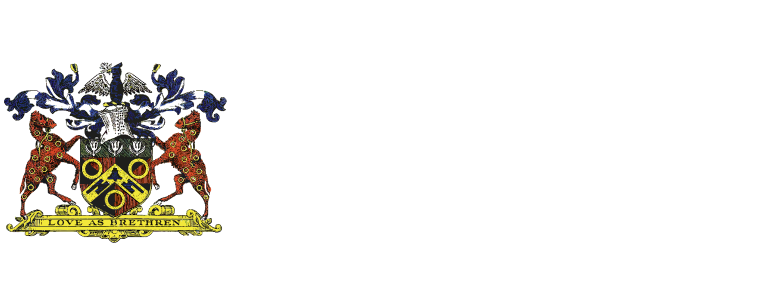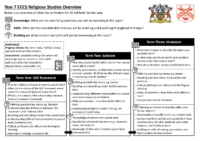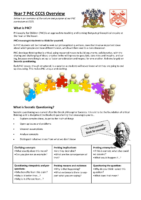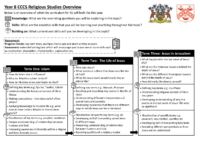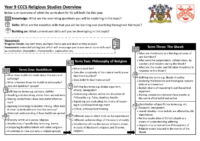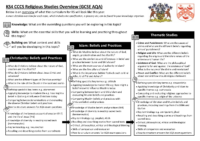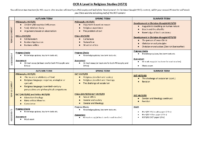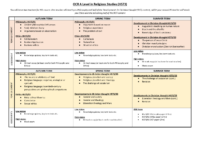Religious Studies
Whether you consider yourself a religious person or not, or whether you think religion has played a positive or negative role in history, it is clear that religion and belief have had an impact on almost every aspect of society.
Religious Studies is a highly valued subject at The Coopers’ Company and Coborn School and we are proud that our most recent Section 48 inspection judged the effectiveness of RE as ‘Excellent’. Highlights from the report include:
“Its curriculum is well thought through and academically rigorous with numerous opportunities for students to consider issues of religious, spiritual, moral and ethical concern. Its approach to curriculum development is exemplary. It is rightly recognised within the academy as a ‘flagship’ department (…) The team are confidently led by a well experienced subject leader. The team set high expectations and aspirations for RE and work closely together to develop and share approaches and resources.”
Religious Studies is a highly valued subject at The Coopers’ Company and Coborn School and we are proud that it is taught by subject specialists. In lessons, students not only examine the evolution of beliefs and practices of major world religions, but they are also encouraged to grapple with thought-provoking and challenging questions about the meaning and purpose of life, beliefs about God, issues of morality and what it means to be human. Students learn about and from the complexity and diversity of religious and non-religious worldviews in local, national and global contexts, to discover, explore and consider different answers to these questions. With the knowledge and skills gained through taking part in Religious Studies, students are enabled to develop their own ideas, values and identities.
A real strength of our department lies in the regular and systematic developing of dialogue skills, which is further encouraged through embedding P4C (Philosophy for Children) lessons within the KS3 curriculum, so our students can participate positively and respectfully in our diverse society. We aim to develop students’ capability of articulating clearly and coherently their personal beliefs, ideas, values and experiences, while respecting the right of others to differ.
Course description / What will you learn about?
What will students learn in KS3?
Students have Religious Studies two hours per fortnight, with an extra hour in Year 7 dedicated to P4C*. The content taught within the KS3 curriculum is designed to promote students’ curiosity, skills of analysis and develop a deeper understanding of the world that we live in. With this in mind, our curriculum reflects the following view:
“…simply covering a greater number of religious and non-religious traditions (as inclusive as that sounds) is no guarantee of a high quality RE curriculum. This overloads the curriculum and might lead to superficial caricatures of religious and non-religious traditions […] High-quality RE curriculums capture the diversity, fluidity and complexity of global religion/non-religion in their curriculum representations. Importantly, the content is sequenced so that pupils can make sense of its complexity” – Ofsted Framework, 2021 (p12)
The content studied and skills gained at KS3 will provide a strong platform for students learning at GCSE and is sequenced as follows…
Year 7:
- Old Testament (Genesis and Exodus)
- Judaism
- Hinduism
For a more detailed overview of what the curriculum looks like for Year 7 click on the tab below:
*For an explanation into the nature and purpose of P4C at CCCS click on the tab below:
Year 8:
- Islam
- The Life of Jesus
- Jesus in Jerusalem
For a more detailed overview of what the curriculum looks like for Year 8 click on the tab below:
Year 9:
- Buddhism
- Philosophy of Religion
- The Shoah
For a more detailed overview of what the curriculum looks like for Year 9 click on the tab below:
How will students be assessed in KS3?
Throughout KS3, students will be assessed in a variety of ways ranging from low stake assessments which include key term tests, knowledge recall quizzes etc to high stake assessments which will assess knowledge of a topic in its entirety, including extended writing tasks.

